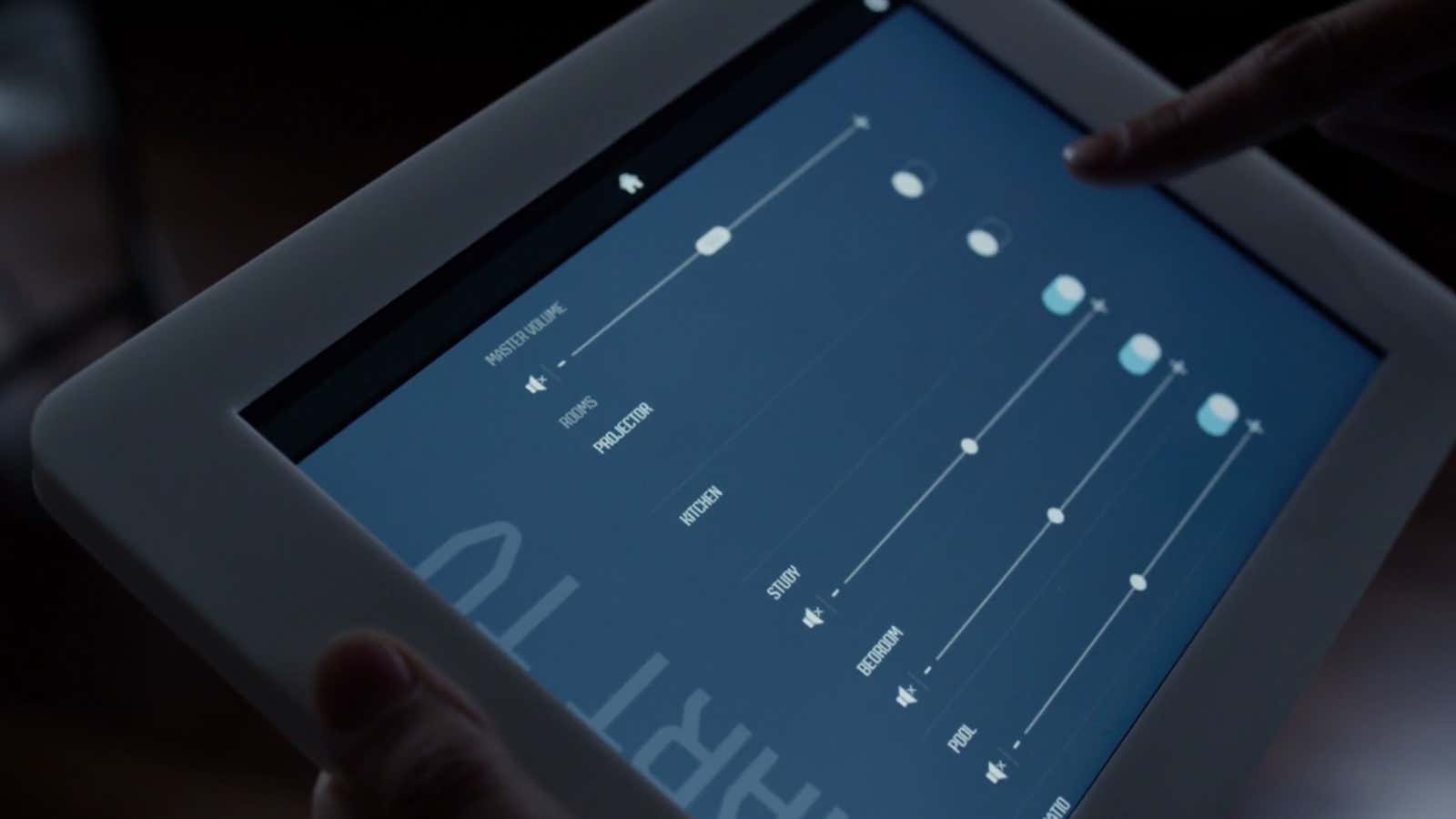USA Network’s imaginative Emmy-nominated series Mr. Robot, about a group of hackers conspiring to change the world, is easily TV’s most tech-savvy show. Instead of having characters mindlessly type away at keyboards, Mr. Robot shows how hacking can actually happen in real life.
The best scene of this week’s season two premiere didn’t show any hacking directly. Rather, it showed us, quite terrifyingly, what it’s like to be hacked, to lose control of your technology and have it turn against you.
The scene, depicting the hack of a “smart home,” played out like a self-contained short horror film within the episode (reminiscent of the 1977 sci-fi horror movie The Demon Seed, in which Julie Christie is terrorized by an artificial intelligence that takes over her house).
A woman—Susan Jacobs, the general counsel of the show’s fictional multinational corporation, which is targeted by the hackers—returns to her swanky, gothically futuristic apartment after a run through Manhattan’s Greenwich Village. Things quickly start to go wrong.
First, her alarm goes off. Then her projector turns on by itself as a screen descends from the ceiling.
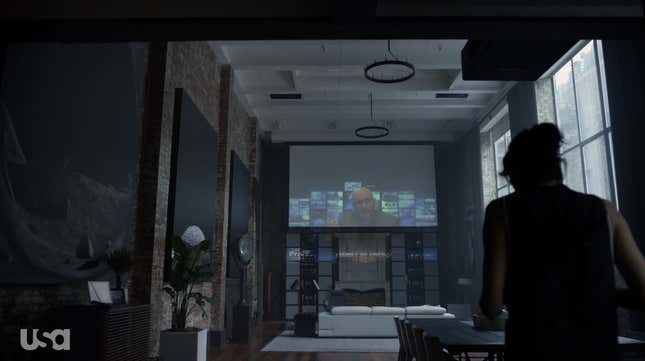
She manages to turn off the projector with a tablet (shown above) that apparently controls every room in the apartment.
Next, she goes for a swim in her indoor lap pool—interrupted by flickering lights and Mozart’s “The Marriage of Figaro” overture blaring throughout the apartment (with a Jaws-like shot of her legs kicking underwater). One of the world’s greatest orchestral compositions never sounded so menacing.

By now, she suspects something is off, but that doesn’t stop her from hopping right into the shower, in a moment that invokes memories of the famous shower scene in Psycho (video).
You can probably guess what happens next—the shower inexplicably turns scalding hot (a problem many New Yorkers are familiar with, though usually caused by old pipes, not hackers).
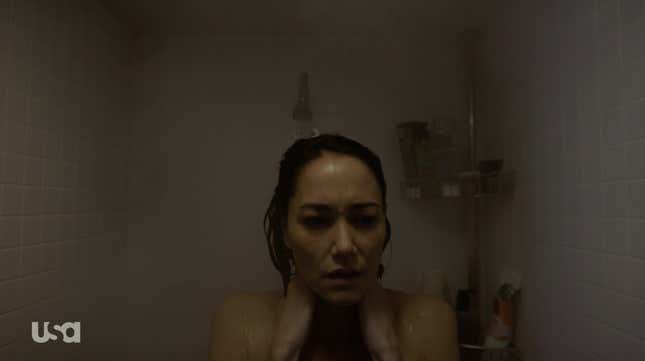
When Jacobs leaps out of the shower, someone, or something, has turned the thermostat down to 53 degrees Fahrenheit.
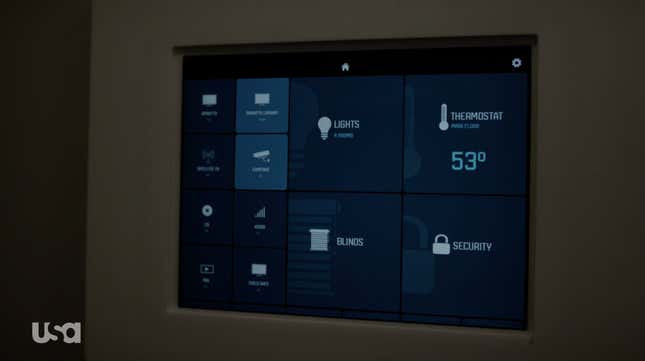
And then, the grand finale. Everything in her apartment goes off at once as Mozart’s overture crescendos. The projector turns on, the screen comes down, the alarm shrieks, the phone rings. No one’s on the other line.
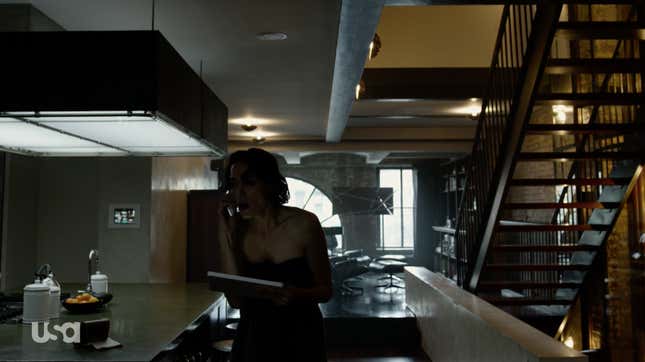
Bundled into a down coat as the temperature continues to drop, Jacobs calls for help, but there’s nothing she can do. ”Unplug what?” she says over the phone. “Everything is inside the walls.”
She’s flees her home in a limosine, and the minute she leaves, the hackers enter and proceed to party aggressively and destructively, evoking the terror of home invasion horror movies.
A smart home hack like this might seem a little farfetched (the system in itself, while clearly based on real technology, was still advanced beyond current available tech), but they’re possible. Several studies have shown the inherent security vulnerabilities of smart technology. Researchers at the University of Michigan were able to unlock doors and set off fire alarms on Samsung’s SmartThings platform. Nearly anything connected to the internet is susceptible to hacking, including cars, fridges, and medical devices.
The more common problems, however, are not due to malicious hacks but to more mundane malfunctions. Mr. Robot this week made a strong case that we’re probably better off keeping our homes dumb.




